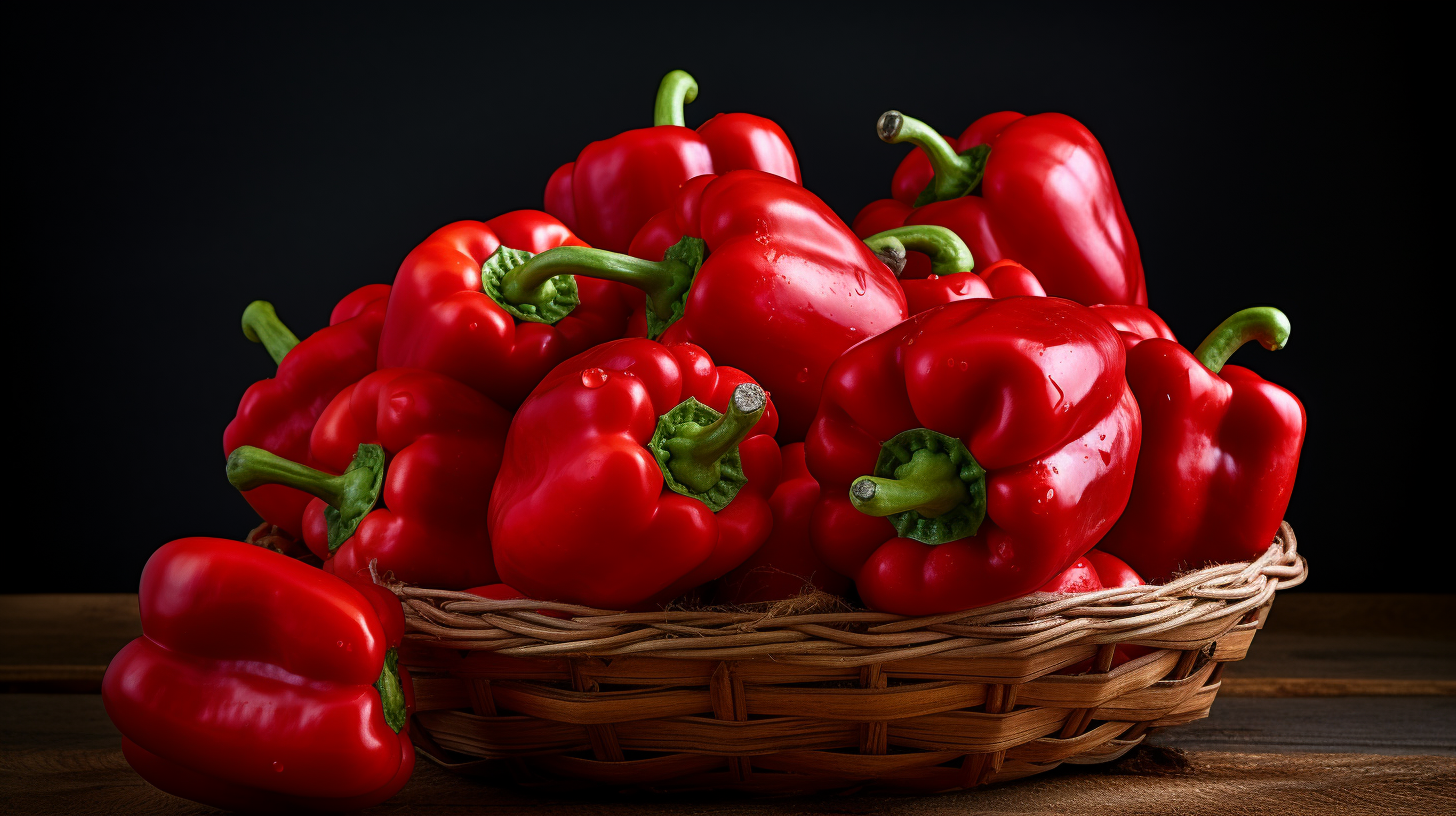Are you looking to boost your immune health naturally? Wondering what role Vitamin C plays in strengthening your immune system? Discover the power of Vitamin C-rich foods for immunity and learn why Vitamin C is essential for a strong immune system.
In this article, we will explore the importance of Vitamin C in enhancing your immune health. We will delve into the specific ways in which Vitamin C boosts immunity and discuss the benefits of including Vitamin C-rich foods in your diet. Whether you’re looking to prevent illness or recover faster, Vitamin C may have the key to unlocking your body’s natural defense system.
Key Takeaways:
- Vitamin C is crucial for enhancing your immune health.
- Vitamin C acts as an antioxidant and supports various immune functions.
- Including Vitamin C-rich foods in your diet can naturally boost your immune system.
- Vitamin C supplements can be beneficial for those who have difficulty meeting daily requirements.
- Other lifestyle factors, such as sleep and exercise, also play a role in maintaining a strong immune system.

Understanding the Immune System
Before diving into the specific benefits of Vitamin C for immunity, let’s first understand how the immune system works. The immune system is a complex network of cells, tissues, and organs that work together to defend the body against harmful pathogens, such as bacteria, viruses, and parasites.
At its core, the immune system’s primary function is to distinguish between the body’s own healthy cells and foreign invaders. When it detects a threat, the immune system initiates a response to neutralize and eliminate the harmful pathogens to protect the body’s overall health.
The immune system consists of various components, including:
- White blood cells: These cells are responsible for identifying and destroying pathogens.
- Antibodies: These proteins help recognize and neutralize specific pathogens.
- Lymphatic system: This system carries lymph, a fluid that contains white blood cells, throughout the body.
- Spleen, thymus, and bone marrow: These organs produce and store immune cells.
Vitamin C plays a crucial role in supporting the immune system’s functions. It is involved in the production and function of white blood cells, which are essential for fighting off infections. Additionally, Vitamin C acts as an antioxidant, protecting the immune cells from damage caused by harmful free radicals.
The Importance of Vitamin C for Immune Health
Vitamin C is an essential nutrient that plays a crucial role in supporting immune health. It is known for its powerful antioxidant properties that help protect the body against harmful free radicals. But its benefits go beyond that! Vitamin C also plays a key role in enhancing immune function and supporting the body’s natural defense mechanisms. Let’s explore why Vitamin C is important for a strong immune system and how it can help boost immunity.
One of the primary ways in which Vitamin C supports immune health is by promoting the production of white blood cells, which are responsible for fighting off infections and diseases. It helps stimulate the production of lymphocytes, a type of white blood cell that plays a vital role in the immune response. By enhancing the production of these key immune cells, Vitamin C strengthens the immune system’s ability to defend against pathogens.
Additionally, Vitamin C plays a crucial role in the synthesis of collagen, a structural protein important for the health of the skin, tissues, and organs. A strong and healthy skin barrier is essential in preventing the entry of pathogens into the body. Vitamin C helps maintain the integrity of the skin barrier, making it more difficult for harmful bacteria and viruses to invade.
Furthermore, Vitamin C acts as an antioxidant and protects immune cells from damage caused by oxidative stress. Oxidative stress can weaken the immune system and make it more susceptible to infections. By reducing oxidative stress, Vitamin C helps preserve the integrity and functionality of immune cells, allowing them to perform their defense functions more effectively.
Incorporating Vitamin C into your daily diet is crucial for maintaining optimal immune health. While Vitamin C can be found in a variety of fruits and vegetables, it’s important to ensure you’re getting enough through your diet or supplementation. For adults, the recommended daily intake of Vitamin C is 75-90 mg for women and 90-120 mg for men. However, during times of increased stress, illness, or exposure to pathogens, higher doses may be beneficial.
| Vitamin C-Rich Foods | Vitamin C Content (per 100g) |
|---|---|
| Oranges | 53.2 mg |
| Kiwi | 92.7 mg |
| Strawberries | 59.0 mg |
| Bell Peppers (red) | 127.7 mg |
| Papaya | 60.9 mg |
| Broccoli | 89.2 mg |
| Kale | 93.4 mg |
| Guava | 228.3 mg |
As you can see from the table above, there are numerous Vitamin C-rich foods that you can include in your diet to boost your immunity. These include oranges, kiwi, strawberries, bell peppers, papaya, broccoli, kale, and guava. Incorporating these foods into your meals and snacks can provide you with a significant amount of Vitamin C to support your immune system.
Remember, Vitamin C is just one piece of the puzzle when it comes to maintaining a strong immune system. It’s important to also prioritize a balanced diet, regular exercise, quality sleep, and stress management for overall immune health. By taking care of your body and providing it with the necessary nutrients, you can strengthen your immune system and enjoy better overall well-being.

How Vitamin C Boosts Immunity
Vitamin C plays a crucial role in boosting immunity and supporting overall health. As an antioxidant, it helps protect the body against harmful free radicals and strengthens the immune system. Here are some specific ways in which Vitamin C enhances your immune response:
- Promotes the Production of White Blood Cells: Vitamin C stimulates the production of white blood cells, which are essential in fighting off infections and diseases. These cells act as the body’s defense system, targeting and neutralizing harmful pathogens.
- Strengthens the Skin Barrier: Vitamin C is involved in the synthesis of collagen, a protein that helps maintain the integrity of the skin. By strengthening the skin barrier, Vitamin C prevents pathogens from entering the body and reduces the risk of infections.
- Enhances Antioxidant Defense: Antioxidants play a vital role in neutralizing free radicals and protecting cells from damage. Vitamin C acts as a powerful antioxidant, helping to reduce inflammation and oxidative stress, both of which can weaken the immune system.
- Supports Immune Cell Function: Vitamin C enhances the function of various immune cells, including natural killer cells, lymphocytes, and phagocytes. These cells work together to identify and eliminate harmful invaders in the body.
In addition to these benefits, Vitamin C also aids in the absorption of iron, another essential nutrient for immune health. By ensuring optimal iron levels, Vitamin C further supports the immune system’s ability to function effectively.
Incorporating Vitamin C-rich foods into your diet is a natural and effective way to boost your immunity. From citrus fruits like oranges and grapefruits to strawberries, red bell peppers, and broccoli, there are numerous delicious options to choose from. Aim to include these Vitamin C-rich foods in your meals regularly to support your immune system and overall well-being.
Recommended Vitamin C Dosage for Immunity
To maximize the benefits of Vitamin C for immunity, it is important to understand the recommended dosage. Adequate Vitamin C intake is essential for supporting a healthy immune system and promoting overall well-being.
The National Institutes of Health (NIH) recommends the following daily intake of Vitamin C for adults:
- Men: 90 milligrams (mg) per day
- Women: 75 milligrams (mg) per day
It should be noted that these recommendations are for the general population and may vary depending on individual needs and health conditions.
However, some studies suggest that higher doses of Vitamin C may have additional benefits for immune health, especially during times of increased stress or illness. Consult with a healthcare professional to determine the appropriate dosage for your specific needs.
While it is always recommended to obtain nutrients from a balanced diet, Vitamin C supplements are also available to help meet daily requirements. These supplements come in various forms, including tablets, capsules, and powders, making it easy to incorporate into your routine.
Remember that it is crucial to follow dosage instructions provided and never exceed the recommended limit, as excessive Vitamin C intake can lead to gastrointestinal discomfort or other adverse effects.
Vitamin C Rich Foods for Immunity
Consuming foods rich in Vitamin C is a natural and effective way to enhance immunity. Vitamin C is a vital nutrient that supports various immune functions and helps protect the body from infections and diseases. Including Vitamin C-rich foods in your diet can provide the necessary boost to your immune system.
Here are some Vitamin C-rich foods that you can incorporate into your meals:
- Citrus fruits: Oranges, lemons, grapefruits, and tangerines are excellent sources of Vitamin C. They not only provide a refreshing burst of flavor but also deliver a significant dose of immune-boosting Vitamin C.
- Berries: Strawberries, blueberries, raspberries, and blackberries are packed with Vitamin C and antioxidants. These colorful fruits not only enhance the flavor of your meals but also provide a nutritious punch to support your immune system.
- Leafy greens: Spinach, kale, broccoli, and Brussels sprouts are rich in Vitamin C, along with other essential nutrients. These greens not only contribute to a balanced diet but also help strengthen your immune defenses.
- Kiwi: This small fruit is a powerhouse of Vitamin C. With its sweet and tangy taste, kiwi adds a tropical twist to your meals while boosting your immunity.
- Bell peppers: Red, yellow, and green bell peppers are not only colorful additions to your dishes but also excellent sources of Vitamin C. They offer a range of health benefits, including immune support.
- Papaya: This tropical fruit is known for its delicious taste and high Vitamin C content. Including papaya in your diet can provide a flavorful way to enhance your immune system.
These are just a few examples of Vitamin C-rich foods that can help boost your immunity. There are many more options available, so feel free to explore and experiment with different fruits and vegetables to find your favorites.
Remember, it’s essential to have a balanced and varied diet that includes a wide range of nutrients, including Vitamin C, to support your immune system and overall health. Pairing Vitamin C-rich foods with other immune-boosting nutrients can further enhance their benefits. Consult with a healthcare professional or registered dietitian for personalized dietary recommendations.

Supplementing with Vitamin C for Immunity
While getting Vitamin C from natural food sources is ideal, supplementation can be beneficial for those who have difficulty meeting their daily requirements. Vitamin C supplements are a convenient way to ensure you are getting enough of this essential nutrient to support your immune health.
Research has shown that Vitamin C supplements can help reduce the duration and severity of respiratory infections. They can also provide additional antioxidant support to combat oxidative stress and promote overall immune function.
Choosing the Right Vitamin C Supplement
When selecting a Vitamin C supplement for immunity, it is important to consider the following:
- The form of Vitamin C: Look for supplements that contain ascorbic acid or calcium ascorbate, as they are well-absorbed by the body.
- Dosage: The recommended daily intake of Vitamin C for adults is around 75-90mg. However, higher doses may be required for certain individuals, such as those with specific health conditions or during times of increased stress or illness.
- Quality and purity: Choose a reputable brand that undergoes third-party testing to ensure the product is free from contaminants and meets safety standards.
It is always advisable to consult with a healthcare professional before starting any new supplementation regimen, especially if you have any underlying health conditions or take medication.
Comparison of Popular Vitamin C Supplements
| Brand | Form | Dosage | Purity | Price |
|---|---|---|---|---|
| Nature’s Way | Ascorbic Acid | 1000mg | Third-party tested | $10 |
| Now Foods | Calcium Ascorbate | 500mg | Lab-tested | $15 |
| Solgar | Buffered Vitamin C | 750mg | Certified purity | $20 |
Note: Prices and availability may vary. Always refer to the product labels for the most accurate and up-to-date information.
Remember, while supplementation can be beneficial, it should not replace a healthy and balanced diet rich in Vitamin C-rich foods. Aim to incorporate a variety of fruits and vegetables into your meals to maximize the benefits of this essential nutrient for your immune health.
Vitamin C and Other Nutrients for Immune Support
Vitamin C is a key player in supporting the immune system, but it doesn’t work alone. There are other essential nutrients that work synergistically with Vitamin C to provide optimal immune support. Two such nutrients that play a significant role are zinc and vitamin D.
Zinc: A Powerful Immune Booster
Zinc is an essential mineral that plays a crucial role in immune function. It is involved in the production and activation of various immune cells, including T cells and natural killer cells. Zinc also helps regulate immune signaling molecules and supports the body’s natural defense mechanisms against viruses and bacteria.
In addition to its direct effects on immune function, zinc also plays a role in wound healing and growth and development. A deficiency in zinc can weaken the immune system and increase the susceptibility to infections.
Some food sources rich in zinc include:
- Shellfish, such as oysters and crab
- Red meat, such as beef and lamb
- Poultry, such as chicken and turkey
- Legumes, such as chickpeas and lentils
- Seeds, such as pumpkin seeds and sesame seeds
- Whole grains, such as quinoa and brown rice
Vitamin D: Enhancing Immune Function
Vitamin D is a fat-soluble vitamin that plays a crucial role in immune health. It helps regulate the function and development of immune cells, including T cells and B cells, and supports the body’s defense against infections.
Research has shown that Vitamin D deficiency is associated with increased susceptibility to respiratory infections. Adequate Vitamin D levels are particularly important for individuals with compromised immune systems or those living in regions with limited sunlight exposure.
Sunlight is the best natural source of Vitamin D, as the skin produces it when exposed to sunlight. However, certain foods can also provide Vitamin D, such as:
- Fatty fish, such as salmon and trout
- Egg yolks
- Mushrooms exposed to sunlight
- Fortified foods, such as milk, orange juice, and breakfast cereals
| Nutrient | Role in Immune Support | Main Food Sources |
|---|---|---|
| Vitamin C | Boosts immune function, supports the production of white blood cells, and strengthens the skin barrier | Citrus fruits, strawberries, kiwi, bell peppers |
| Zinc | Plays a crucial role in immune cell function and helps regulate immune signaling molecules | Oysters, red meat, poultry, legumes, seeds |
| Vitamin D | Regulates immune cell function and supports the body’s defense against infections | Fatty fish, egg yolks, mushrooms, fortified foods |
By incorporating these nutrients into your diet, you can provide your immune system with valuable support. Remember to consult with a healthcare professional or registered dietitian to ensure you meet your individual nutrient needs.

Lifestyle Factors That Affect Immune Health
In addition to the role of Vitamin C in boosting immunity, there are several lifestyle factors that play a crucial role in maintaining a strong immune system.
Sleep: Quality sleep is essential for a healthy immune system. During sleep, your body repairs and regenerates cells, including those vital to your immune system. Lack of sleep can weaken your immune response, making you more susceptible to infections and illnesses.
Exercise: Regular physical activity is not only beneficial for your overall well-being but also for your immune health. Exercise helps improve circulation, allowing immune cells to move more freely throughout your body and effectively combat pathogens.
Stress Management: Chronic stress can have a negative impact on your immune system. Prolonged stress releases cortisol, a hormone that suppresses immune function. Engaging in stress-relieving activities such as mindfulness meditation, yoga, or hobbies can help support your immune health.
Did You Know? Vitamin C has been shown to have stress-reducing properties, further emphasizing its importance in immune health.
By prioritizing sleep, incorporating regular exercise into your routine, and adopting healthy stress management techniques, you can contribute to a resilient immune system.
Recipes and Meal Ideas to Boost Immunity
Incorporating Vitamin C-rich foods into your meals is not only healthy but also delicious. Here are some recipes and meal ideas that are rich in Vitamin C to help you boost your immunity:
1. Citrus Salad
Ingredients:
- 2 oranges, peeled and segmented
- 1 grapefruit, peeled and segmented
- 1 cup mixed berries (such as strawberries, blueberries, and raspberries)
- 1/4 cup chopped fresh mint leaves
- 1 tablespoon honey
Instructions:
- In a large bowl, combine the oranges, grapefruit, mixed berries, and chopped mint leaves.
- Drizzle the honey over the fruit mixture and gently toss to coat.
- Serve chilled as a refreshing and vitamin C-rich salad.
2. Roasted Red Pepper and Tomato Soup
Ingredients:
- 3 red bell peppers, seeded and quartered
- 3 tomatoes, quartered
- 1 onion, chopped
- 3 garlic cloves, minced
- 2 cups vegetable broth
- 1 tablespoon olive oil
- 1 teaspoon dried basil
- Salt and pepper to taste
Instructions:
- Preheat the oven to 400°F (200°C).
- In a baking dish, toss the red bell peppers, tomatoes, onion, and garlic cloves with olive oil, dried basil, salt, and pepper.
- Roast in the preheated oven for 25-30 minutes, or until the vegetables are soft and slightly charred.
- In a blender, combine the roasted vegetables and vegetable broth. Blend until smooth.
- Transfer the blended soup to a pot and heat over medium heat until warmed through.
- Serve hot and enjoy the immune-boosting benefits of this vitamin C-rich soup.
3. Spinach and Strawberry Salad
Ingredients:
- 4 cups fresh spinach leaves
- 1 cup sliced strawberries
- 1/4 cup crumbled feta cheese
- 1/4 cup chopped walnuts
- 2 tablespoons balsamic vinaigrette
Instructions:
- In a large bowl, combine the spinach leaves, sliced strawberries, crumbled feta cheese, and chopped walnuts.
- Drizzle the balsamic vinaigrette over the salad and toss to combine.
- Serve as a nutritious and Vitamin C-rich side dish or light meal.
| Recipe | Ingredients | Instructions |
|---|---|---|
| Citrus Salad | 2 oranges, peeled and segmented 1 grapefruit, peeled and segmented 1 cup mixed berries 1/4 cup chopped fresh mint leaves 1 tablespoon honey |
1. Combine the oranges, grapefruit, mixed berries, and mint leaves in a bowl. 2. Drizzle honey over the fruit and gently toss to coat. 3. Serve chilled. |
| Roasted Red Pepper and Tomato Soup | 3 red bell peppers, seeded and quartered 3 tomatoes, quartered 1 onion, chopped 3 garlic cloves, minced 2 cups vegetable broth 1 tablespoon olive oil 1 teaspoon dried basil Salt and pepper to taste |
1. Toss the red bell peppers, tomatoes, onion, and garlic with olive oil, dried basil, salt, and pepper in a baking dish. 2. Roast in the oven for 25-30 minutes. 3. Blend the roasted vegetables and vegetable broth until smooth. 4. Heat the blended soup in a pot and serve hot. |
| Spinach and Strawberry Salad | 4 cups fresh spinach leaves 1 cup sliced strawberries 1/4 cup crumbled feta cheese 1/4 cup chopped walnuts 2 tablespoons balsamic vinaigrette |
1. Combine the spinach leaves, sliced strawberries, feta cheese, and walnuts in a bowl. 2. Drizzle the balsamic vinaigrette over the salad and toss to combine. 3. Serve as a side dish or light meal. |
Other Natural Ways to Support Immune Health
Apart from Vitamin C, there are several other natural ways to support your immune health. Incorporating these lifestyle practices into your daily routine can help strengthen your immune system and enhance your overall well-being.
1. Stay Hydrated
Drinking an adequate amount of water is essential for maintaining optimal immune function. Water helps to flush out toxins and supports the proper functioning of your immune cells. Aim to drink at least eight glasses of water a day to stay hydrated and support your immune health.
2. Maintain a Balanced Diet
A well-balanced diet is crucial for supporting your immune system. Include a variety of nutrient-rich foods in your meals, such as fruits, vegetables, whole grains, lean proteins, and healthy fats. These foods provide essential vitamins, minerals, and antioxidants that help strengthen your immune response.
3. Get Adequate Sleep
Sleep plays a vital role in maintaining a healthy immune system. During sleep, your body repairs and restores itself, aiding in the production of immune cells. Aim for seven to nine hours of quality sleep each night to support your immune health.
4. Exercise Regularly
Regular physical activity can boost your immune system by increasing the circulation of immune cells in your body. Engage in moderate-intensity exercises, such as brisk walking, cycling, or swimming, for at least 150 minutes per week. Remember to consult with your healthcare provider before starting any exercise program.
5. Manage Stress
Chronic stress can weaken your immune system, making you more susceptible to infections. Practice stress-management techniques such as deep breathing, meditation, yoga, or engaging in hobbies to reduce stress levels and support your immune health.
6. Avoid Smoking and Excessive Alcohol Consumption
Smoking and excessive alcohol consumption can impair your immune system, leaving you vulnerable to infections. Quit smoking and limit your alcohol intake to support your immune health and overall well-being.
“By incorporating these natural lifestyle practices into your daily routine, you can create a strong foundation for a healthy immune system. Alongside Vitamin C-rich foods, staying hydrated, maintaining a balanced diet, getting adequate sleep, exercising regularly, managing stress, and avoiding smoking and excessive alcohol consumption are key to supporting your immune health.”
7. Seek Professional Advice
If you have any concerns about your immune health or if you are considering making any significant lifestyle changes, it is always best to consult with a healthcare professional. They can provide personalized guidance and recommend the most suitable strategies to support your immune system.

Conclusion
In conclusion, Vitamin C plays a vital role in boosting immunity and promoting overall immune health. By incorporating Vitamin C-rich foods into your diet, you can harness the numerous benefits it offers for your immune system.
Vitamin C acts as an antioxidant, protecting cells from damage, and helps stimulate the production of white blood cells, which are essential for fighting off infections. Its role in collagen synthesis also contributes to maintaining a healthy skin barrier, preventing pathogens from entering the body.
To reap the benefits of Vitamin C, include foods such as citrus fruits, berries, leafy greens, and bell peppers in your meals. Aim for the recommended daily intake to ensure optimal immune support.
Remember, while Vitamin C is an important nutrient for immune health, it works in synergy with other nutrients and lifestyle factors. Maintain a balanced diet, exercise regularly, manage stress, and get enough sleep to further boost your immune system’s resilience.
FAQ
What is the role of Vitamin C in boosting immunity?
Vitamin C plays a crucial role in boosting immunity. It acts as an antioxidant, supports various immune functions, and promotes the production of white blood cells, which are essential for fighting off infections.
Why is Vitamin C important for immune health?
Vitamin C is important for immune health because it helps strengthen the immune system, supports the skin barrier, enhances the production of antibodies and white blood cells, and reduces the duration and severity of common cold symptoms.
How much Vitamin C do I need to support a healthy immune system?
The recommended daily intake of Vitamin C for adults is 75-90 mg for women and 90-120 mg for men. However, during times of illness or high stress, higher doses of Vitamin C may be beneficial.
What are some Vitamin C-rich foods that can enhance immunity?
Citrus fruits like oranges and lemons, berries, kiwi, papaya, red bell peppers, broccoli, spinach, and kale are all excellent sources of Vitamin C that can enhance immunity.
Can I take Vitamin C supplements for immune support?
Yes, you can take Vitamin C supplements to support immune health. They can be particularly beneficial if you have difficulty meeting your daily Vitamin C requirements through diet alone.
Is there a synergy between Vitamin C and other nutrients for immune support?
Yes, Vitamin C works synergistically with other essential nutrients like zinc and vitamin D to support optimal immune function. Including a variety of nutrient-rich foods in your diet is important for overall immune health.
Are there any lifestyle factors that can affect immune health?
Yes, certain lifestyle factors like adequate sleep, regular exercise, stress management, and avoiding smoking and excessive alcohol consumption can positively influence immune health along with Vitamin C intake.
Can you provide some recipes and meal ideas that are rich in Vitamin C?
Certainly! Here are a few ideas: citrus fruit salad with strawberries and kiwi, roasted red pepper and spinach frittata, broccoli and orange stir-fry, kale and avocado smoothie, and spinach and strawberry salad with a lemon vinaigrette. These recipes are not only delicious but also packed with Vitamin C to boost your immunity.
Besides Vitamin C, are there any other natural ways to support immune health?
Yes, in addition to Vitamin C, maintaining a balanced diet, staying hydrated, getting enough restful sleep, managing stress effectively, and avoiding smoking and excessive alcohol consumption are all natural ways to support immune health.










